ICT Diplomacy: A Change in the Dynamics
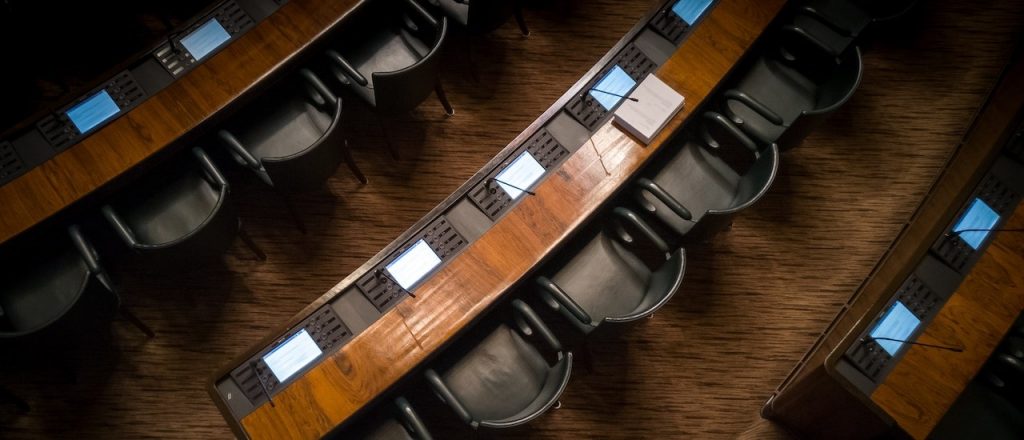
12 October to 6 November 1998, Minneapolis, United States: a point in time that cannot be forgotten. The ITU Plenipotentiary conference (PP-98) took place, recognizing perhaps for the first time points that impacted the future of Information and Communication Technologies (ICT) diplomacy.
The conference acknowledged the need to have the private sector as part of the union membership, together with the “associates category” for some of its study groups. Furthermore, the resolution calling for the World Summit on the Information Society (WSIS) first emerged, introducing ITU’s role in the “evolution of Internet as a means of global communication.”
The scene prior to this was an intense discussion on digital evolution. Governments were starting to understand how ICTs could help solve many issues and contribute to economic growth. The “divide” that was once prevailing between the north and the south economically, or between the developing and developed world, quickly started to shift to a “digital divide,” not only between different countries and regions, but among one country and its own boundaries and cities.
In 2001, the ITU Council approved the WSIS Summit in two phases (2003 in Geneva and 2005 in Tunisia). Later, the UN General Assembly approved the Continue reading
The Week in Internet News: Artificial Intelligence Will Affect Every Job
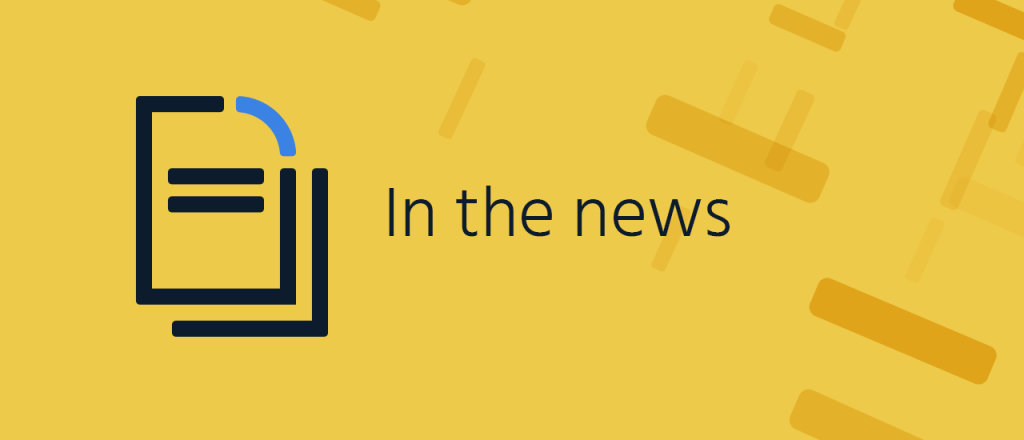
AI and your job: Artificial Intelligence will affect 100 percent of the jobs out there, IBM CEO Ginni Rometty predicted, as noted at ZDNet.com. Everyone will have to change the way they work, she said. IBM’s work with its Watson AI system “starts with a fundamental belief that it’s going to change 100 percent of jobs, 100 percent of industries, and 100 percent of professions,” she added.
AI and your vote: Meanwhile, AI is creating new threats to election security, says CBS News. AI will help hackers better design attacks against voting systems, some security experts said. Automated bots can also be used to help hackers guess passwords, they said.
Big money for AI: Before we leave AI as a topic, the Massachusetts Institute of Technology has announced it will spend US$1 billion on a new college of computing with an AI focus, Fortune reports. The new college will serve as an interdisciplinary hub for data and computer science-related work.
Call it a comeback: BlackBerry, the down-on-its-luck smartphone maker, plans to reinvent itself as a secure Internet of Things hub, FT.com reports. Building on its past reputation as a maker of secure phones, BlackBerry wants to become a Continue reading
When It Comes to IoT, We Must Work Together to #SecureIt

My first ever rendezvous with the word “IoT” was during my final year at a college conference, when a prominent regional start-up figure dispensed an oblique reference to it. I learned that IoT was the next big thing veering towards the mass market, which would eventually change the course of everyday human existence by making our way of life more convenient. What caught my attention was the term “things” in IoT – an unbounded category which could be anything from the the bed you sleep on, the clothes you drape, or even the personal toiletries you use.
The Internet of Things (IoT) is a class of devices that “can monitor their environment, report their status, receive instructions, and even take action based on the information they receive.” IoT connotes not just the device but also the complex network connected to the device. Multiple studies have revealed that there are more connected devices than people on the planet. Although, combining computers and networks to devices has existed for long, they were previously not integrated to consumer devices and durable goods, used in ordinary day to day life. Furthermore, IoT being an evolving concept, exhibiting a range of ever-changing features, Continue reading
IXPs: Why Is the Middle East Lagging Behind?

On October 2nd, the Internet Society was happy to support the ITU in organizing the IXP Workshop on Peering and Interconnection in the Arab World “Towards unlocking regional interconnection opportunities” It was held in Manama-Bahrain, and kindly hosted by the Telecommunications Regulatory Authority (TRA) of Bahrain. This workshop was held on the eve of the Annual Meeting of the Arab ICT Regulators Network (AREGNET), and 30 regulators and 10 operators attended from all over the Arab region.
The workshop started with an overview of the Arab peering landscape given by Christine Arida, Director for Telecom Services and Planning at National Telecom Regulatory Authority of Egypt. Christine showed that the region is well served by undersea cables, with the oldest IXP established 20 years ago. However, all countries have either an underperforming IXP or do not have one at all. Regionally, cross-border interconnection is almost non-existent – with very few exceptions and most of the traffic is exchanged in London and Marseilles.
The debate started with an acknowledgement that strong and vibrant IXPs are needed in the Arab region. IXPs are a means and not the end… They are the enablers of digital transformation and a means to attract investment. Cheaper Continue reading
Human Connection Frames Success of 2018 Indigenous Connectivity Summit
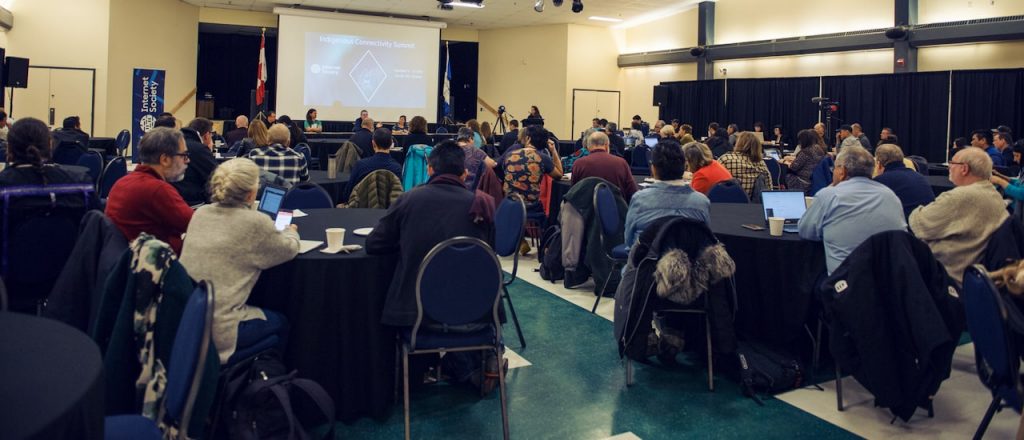
The Internet is an incredible tool that can help amplify voices that may not otherwise be heard. But when it comes to making sure everyone can have access to this tool, we can’t downplay the power of human connections to overcome connectivity challenges.
One of the things that stood out for me most at the 2018 Indigenous Connectivity Summit (ICS) last week in Inuvik, NT was getting a first-hand view of what happens when Indigenous voices are at the forefront of Internet solutions.
Nearly 140 people joined us in the Arctic Circle for a two-day series of panels and presentations focused on finding solutions to improve connectivity in rural and remote Indigenous communities, with a special focus on northern connectivity challenges. The livestream was viewed over 850 times.
It was inspiring to hear speakers shed light on the ways they innovated to bring Internet to underserved Indigenous communities on their own terms through Community Networks throughout North America and abroad.
I think some of the most important successes, however, came when ICS participants were able to interact during breaks, round-table discussions, on the bus trip to Tuktoyaktuk, at the community feast, and even on the flights to and from the Continue reading
Splintering the Internet: The Unintended Consequence of Regulation

In early 2000, two Paris-based, anti-racism groups sued Yahoo on the basis that its auction’s site was exposing French people to more than 1,000 objects of Nazi memorabilia. In May of that year, a French court confirmed the illegal nature of the sale under French law, claiming that the company had offended France’s “collective memory.” More importantly, the judge also ordered Yahoo to identify ways to block French users from its Nazi auction site or other Yahoo sites with content deemed to be racist.
The case attracted significant attention, due to the legal precedent it could set on the right of one country to reach across borders and impose its own laws on online material stored in other countries. At the time, Yahoo’s lawyer expressed his hope that “other countries [wouldn’t] take the same route.”
Fast forward 18 years and today’s Internet is going through an intense phase of regulation with similar effects to those of the Yahoo case. Almost every country in the world is currently in the business of “regulating the Internet.” A clarification is important at this stage. “Internet regulation” is a somewhat loaded and misguided phrase. In reality, what most state actors seek Continue reading
GLIF 2018 Held at the Home of Hamlet
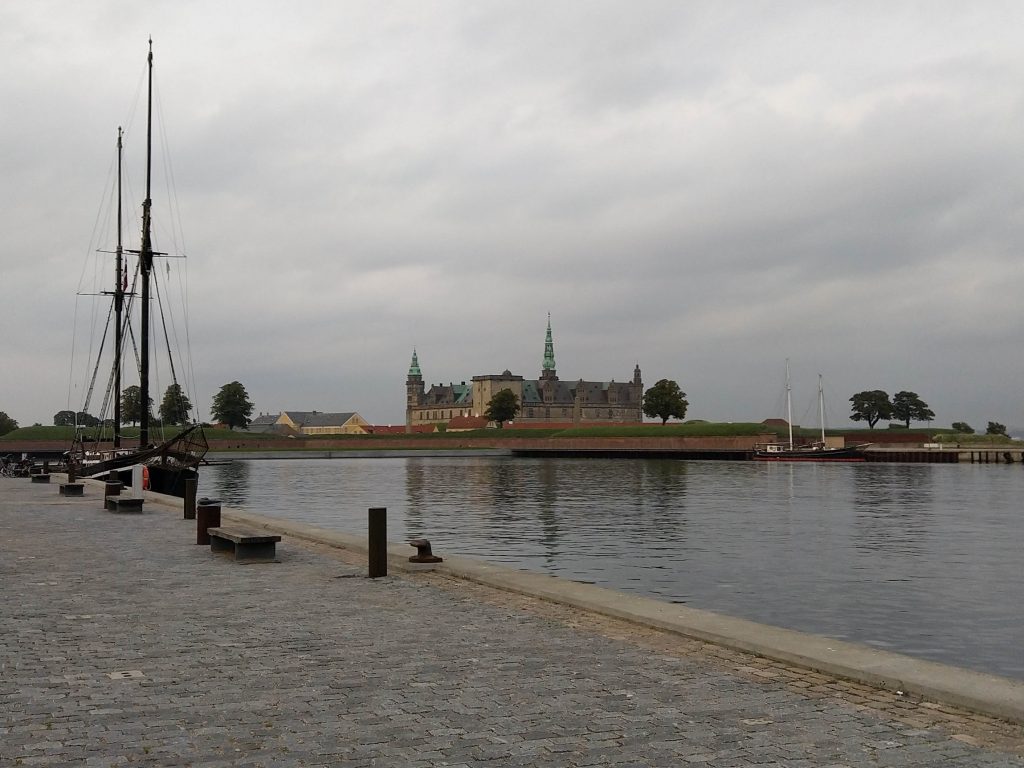
The 18th Annual Global LambaGrid Workshop (GLIF 2018) was held on 18-21 September 2018 at the Kulturværftet in Helsingør (Elsinore), Denmark. Kronberg Castle, located next to the venue, was immortalised as Elsinore in the William Shakespeare play Hamlet, but there proved to be nothing rotten with the state of high-bandwidth networking as 50 participants from 19 countries came to hear how these networks are facilitating exascale computing in support of biological, medical, physics, energy production and environmental research, and to discuss the latest infrastructure developments.
This event was organised by myself with support from NORDUnet who hosted the event in conjunction with the 30th NORDUnet Conference (NDN18), and where I also took the opportunity to raise awareness of the MANRS initiative.
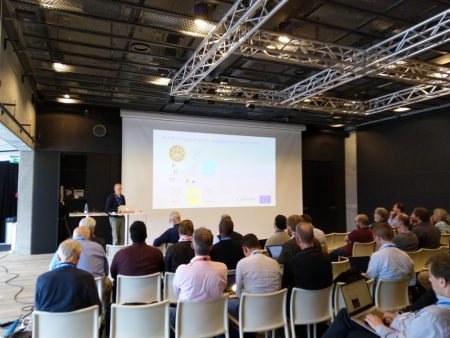
The keynote was provided by Steven Newhouse (EBI) who presented the ELIXIR Compute Platform which was being used for analysing life science data. In common with high-energy physics, genomics research produces a lot of data, but this is more complex and variable, requires sequencing and imqging on shorter timescales, and of course has privacy issues. The European Molecular Biology Laboratory is based across six countries and employs over 1,600 people, but also collaborates with thousands of other scientists Continue reading
Senegal First African Country to Implement Recommendations of ‘Personal Data Protection Guidelines for Africa’
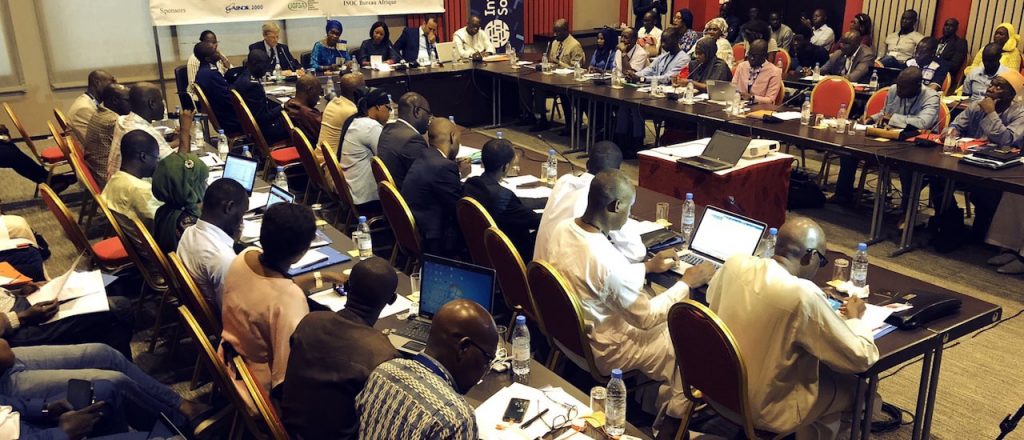
Last week, we have had a busy two days (11-12 October 2018) in Dakar participating in a mutlistakeholder workshop on Privacy and Personal Data Protection in Senegal co-organized by the Personal Data Protection Commission (CDP), the Ministry in charge of Digital Economy (MCTPEN), the Internet Society Senegal Chapter, and supported by the African Regional Bureau of the Internet Society. This workshop was recommended in the Personal Data Protection Guidelines for Africa launched in May 2018 during #AISDakar by the African Union and the Internet Society.
Senegal stands out as the first African Union member to act on that recommendation and run such a workshop, bringing together policy makers, law enforcement, data protection authorities, lawyers, academics, entrepreneurs, and actors of the private sector, civil society, and technologists to debate the issues and build a shared vocabulary and shared understanding.
The discussion was wide-ranging, informed, and mature…
Wide-ranging, because the organizers did a great job of attracting a diverse and engaged set of stakeholders and giving them the time and space to contribute.
Informed, because the participants were asking all the right questions (about privacy, innovation, cybercrime, threats to information, reputation and Continue reading
G20 Women’s Summit: Digital Inclusion for Women
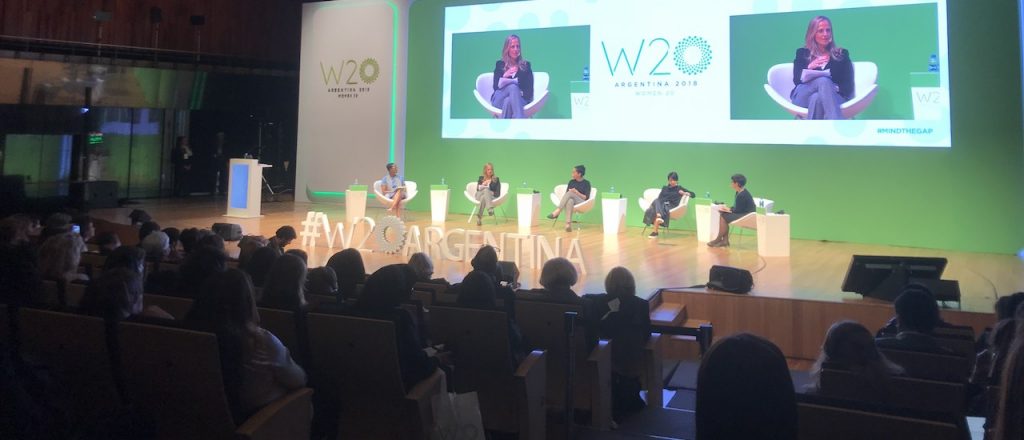
What if future generations in 2030 learned about gender inequality in their history class and not in their lived realities? What can rural women achieve when included in digital society? What can we do now to ensure a future without a gender digital gap?
Many women and girls are being left behind in digital development. Women are 12% less likely to use the Internet globally than men, while in low and middle-income countries, the gap between women’s use and that of men is 26%. This is not only a question of connectivity, but about using the Internet in a meaningful way.
These were some of the critical issues the W20 Summit tackled in Buenos Aires last week.
W20 Argentina, a step forward in the right direction
Women20 (W20) is one of the key G20 engagement groups which supports the promotion of gender inclusive economic growth.
Its recent summit was an opportunity for leaders to make progress on several fronts ranging from digital inclusion to labor inclusion, financial inclusion, and rural development.
In the final Comuniqué, 146 delegates from all sectors of the economy committed to “[Improving] access, affordability, safety, and security of digital services, broadband, and connectivity plans, and the Continue reading
Website update: Experiencing problems with translations into French and Spanish
I must apologize to readers of our French and Spanish versions of our website. We are currently experiencing a problem with our usage of the WordPress Multilingual (WPML) plugin that is preventing us from sending our new content out for translation. It is proving to be quite difficult to identify and fix the issue. We are working with our development team, our hosting provider, and the WPML support team to find the solution. I hope that in the next couple of days we can solve this and return to our regular publishing in three languages.
Thank you for your patience.
P.S. Those who want more of the technical details can see the open WPML support ticket. You are also welcome to contact me directly at [email protected].
The post Website update: Experiencing problems with translations into French and Spanish appeared first on Internet Society.
The Week in Internet News: Facebook Bans ‘Clickbait’ Political Accounts
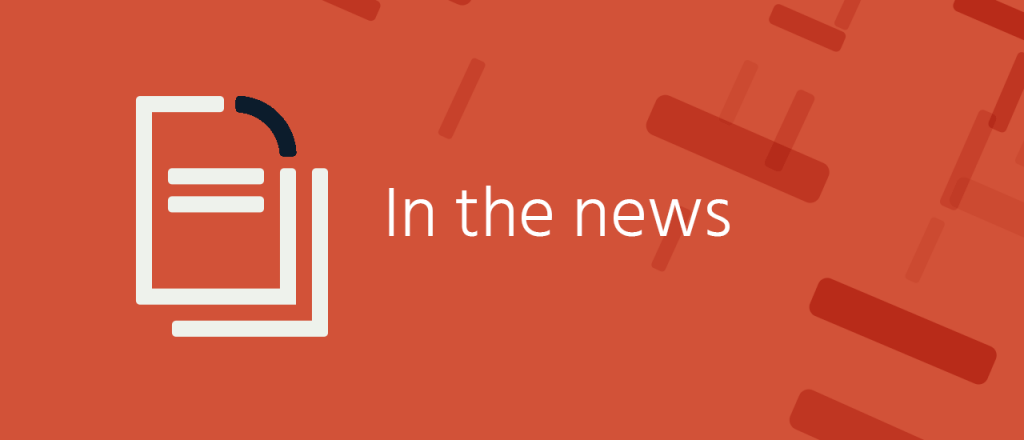
Good-bye clickbait? Facebook has tossed out more than 800 publishers and accounts it accused of trafficking in clickbait and political spam, the Washington Post reports. Facebook also accused some of the accounts of “inauthentic behavior,” otherwise known as fake news. The bans met with some resistance, with some critics saying Facebook’s terms of service represent a moving target.
Let’s Encrypt rising: Let’s Encrypt, a service that provides websites free SSL certificates, is helping the Internet move toward better encryption, Forbes says. Let’s Encrypt “may finally fix the broken world of HTTPS hosting and usher in an online future in which creating an HTTPS site becomes as transparent as visiting one,” the author writes.
Government’s role in IoT security: The U.S. government could drive more security into the Internet of Things industry by changing its tech acquisition standards, says Nextgov. Federal agencies could use the Federal Acquisition Regulation to enforce minimum security standards, the author suggests.
RIP Google+: Google is planning to shut down the consumer version of its Google+ social media site after the company disclosed a massive data breach there, The Verge reports. Google+ also has “low usage and engagement,” according to Google.
Insecure security cameras: Millions of Continue reading
We need to talk… about the state of internet governance

In about a month, some of the key stakeholders in internet governance will come together in Paris and talk about the public policy challenges facing the internet in 2018 and beyond. They will do so at the Internet Governance Forum, a UN-supported platform that will meet for the thirteenth time this year.
The IGF traditionally brings different groups of stakeholders into a large conference centre, and provides for the opportunity for these different stakeholders to discuss: the idea being that understanding, consensus and collaboration will emerge between these different communities.
Join us for a pre-IGF stakeholder networking event on Tuesday, 16 October in Brussels. Learn more and register!
Multistakeholderism: a vivid term with many meanings
The IGF model of multistakeholderism is one of a plethora of different approaches to engaging with actors beyond states in questions of global governance. Some rely more on governments, other processes rely on technical expertise, others have come and gone. Others, like the Internet Society, tend to refer to multistakeholder approaches, rather than one model.
Many observers tend to think this concept was invented by the internet community, but shaping (global) policy through direct engagement with stakeholders has been an integral Continue reading
Indigenous Connectivity Summit 2018: Training Day

True to its location in Festival City – also known as Edmonton, Alberta – the 2018 Indigenous Connectivity Summit’s training day crackled with the energy of community networking advocates from around the world.
Held at the Faculty of Extension at the University of Alberta, the event began with a smudging ceremony led by Dr. Lana Whiskeyjack from Saddle Lake Cree Nation. Lana spoke about the role of smudging to ground ourselves through ceremony. Herman Many Guns from Piikani First Nation then said a prayer and thanked our Treaty 6 hosts for allowing us to host the event on their territories.
Returning to the main venue, Jane Coffin from the Internet Society stressed that community networks are not “pirate” initiatives but rather efforts by communities to support community development through locally-owned and operated broadband. They aim at long-term sustainability and are driven by cooperation and innovation: “They inspire us to think differently and to solve problems together.” Jane also pointed to the barriers these initiatives face, including inappropriate licensing and permits, high taxes and fees on equipment, limited access to financing and funding, and restricted spectrum. Governments and regulatory agencies play an important part in addressing these issues.
Next, I Continue reading
Internet Society submits comments for the revision of the Ethiopian Cybercrime law
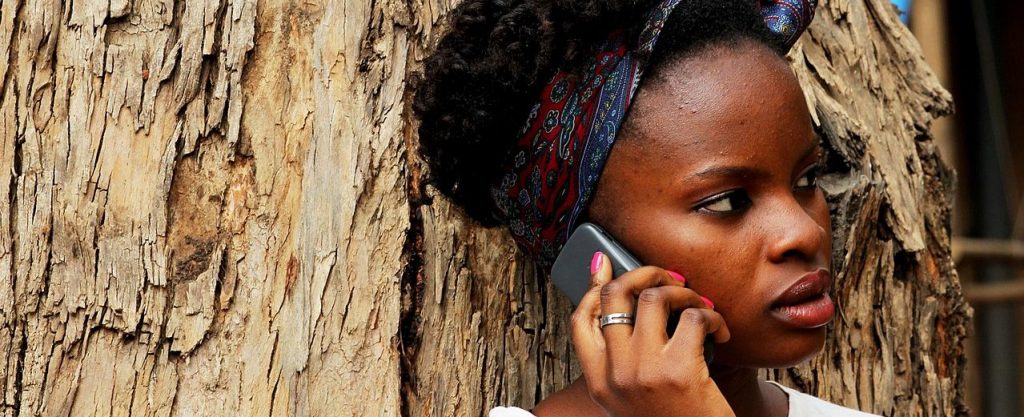
Imagine how much the Internet has changed our lives in the last few decades. Today, thanks to the Internet, we can communicate with anyone around the world, instantaneously, reliably and cheaply. This enables us not only to be close to our friends and family that may be far away but also to bridge the knowledge gap that we have with the developed world. It also opens many work opportunities that we wouldn’t even imagine just a few years back and democratize media, allowing anyone to reach instantaneously millions of people at almost no cost, forcing transparency in governance more than ever before.
At national level, our economies are benefiting from the economic opportunities, directly and indirectly related to the Internet. Experts say that this is just the tip of the iceberg and that there are many more opportunities that are yet to be discovered.
However, we cannot deny that the Internet also comes with increasing challenges. Cybercrime is endangering Internet users, organizations and even countries. Our privacies are threatened every day. And more … It is therefore appropriate that governments act to protect its citizens from the negatives impacts of the Internet by enacting laws and regulations. It was therefore Continue reading
Prioritizing Indigenous Connectivity in North America

It never ceases to amaze me how quickly technology evolves. In 2007, the iPhone was released and dramatically transformed the way we communicate. Then, less than three years later, the first iPad hit consumer shelves and revolutionized personal computing. Now, Internet service providers around the world are racing to deploy the infrastructure needed to fuel our transition into smart cities of increasingly connected homes and driverless cars.
While some major U.S. cities are set to get home access to 5G broadband speeds as soon as this month, there are still many people living in rural and remote Indigenous communities across North America that struggle to open an email.
It’s time to get our priorities straight. The Internet is a powerful tool transforming virtually every aspect of our lives. But we can’t move forward if anyone is left behind. Indigenous voices must count in our digital future.
The Canadian Radio-television and Telecommunications Commission (CRTC) recently made an important step in the right direction when it released details of its $750 million Broadband Fund to improve connectivity in underserved and remote regions of Canada.
The fund makes an important commitment to ensure applicants consult with First Nations, Inuit, and Métis and Continue reading
Training the next generation of network engineers in Kyrgyzstan

The Internet Society in conjunction with Packet Clearing House (PCH), our Kyrgyzstan Chapter (ISOC-KG) and the CAREN Project organised a BGP and Peering capacity building workshop on 3-7 September 2018 in Bishkek, Kyrgyzstan. This five-day workshop was aimed at training engineers for the existing KG-IX Internet Exchange in the capital Bishkek, but also for the prospective Ferghana Valley Internet Exchange being established in the southern city of Osh.
The workshop was led by Nishal Goburdhan who’s an Internet Analyst at PCH, a non-profit organisation that builds and support IXPs around the world. He was assisted by myself (Kevin Meynell), with the workshop being hosted by the National Academy of Sciences of the Republic of Kyrgyzstan.
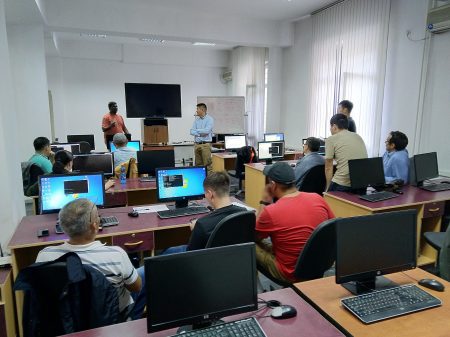
The workshop was comprised of a mix of lectures and hands-on lab work to teach the skills required for interconnecting networks on the Internet, and participating in an Internet Exchange. It commenced with Internet address planning using both IPv4 and IPv6, followed by setting-up OSPF on different internal networks, then interconnecting those using BGP and applying routing policy and filtering. The workshop concluded with how to set-up an IXP and discuss current best practices for peering.
Twelve participants attended the workshop, drawn from the incumbent Continue reading
Africa Is on a Steady Journey to Digital Transformation

The world has seen Africa’s digital future advancing by leaps and bounds in the adoption and use of information and communication technologies (ICTs) in the private and public sectors. What makes this more interesting and promising, is the level of investment and growth of women Engineers in recent years making headlines.
The Gambia has seen much of these developments in recent years with examples of inspiring women Engineers like Mrs Anna Secka Saine who has contributed in building many backbone Networks in Africa such as, Internet eXchange Points (IXPs), National Research and Education Networks (NRENs), and, as well helped trained many young and Professionals engineers.
We have also seen rise in the number of Computer Science clubs, after school coding, summer coding camps, Robotic clubs among others, which all projects the level of awareness and interest.
In August, two brilliant young Gambian High School science students, Sera Momodou Ndure and Ajie Isatou Ceesay from Marina International School (MIS) and West African International School (WAIS) respectively represented The Gambia at the Africa Girls Can Code Initiative (AGCCI2018) in Addis Ababa, Ethiopia.

The Africa Girls Can Code Initiative (AGCCI) 2018-2022 is an Africa Wide Initiative being developed and implemented by the U Continue reading
Routing Security boosted by major network operators

There have been some important developments towards improving routing security over the past few weeks, with announcements at NLNOG and AusNOG, as well as from Cloudflare about commitments to validate IP prefixes and reduce route leaks and hijacks. This supports the work we’ve being doing with the MANRS initiative to raise awareness of this issue, and to persuade network operators to take collaborative responsibility for this critical aspect of the Internet.
Cloudflare to deploy RPKI
Cloudflare has been a long-time advocate of routing security, and during their recent Crypto Week, they announced that they’ll be deploying RPKI on their networks. Resource Public Key Infrastructure (RPKI) allows IP address prefixes and AS numbers to be cryptographically verified (using Route Origin Authorization), and therefore provides some assertion that the holders of these have the right to announce them. The use of RPKI is included as one of the four MANRS actions “Global Validation – facilitating validation of routing information on global scale” which includes the creation of ROAs and the maintenance of accurate data in Internet Routing Registries (IRRs).
Cloudflare also announced GoRTR, which is an open-source implementation of the RPKI to Router (RTR) protocol (see RFC 6810). This is Continue reading
Indigenous Connectivity Summit – my perspective

As the Director of Technology for the Southern California Tribal Chairmen’s Association I’ve been working with Native communities in San Diego County and Southern Riverside County of California in the United States for the past seventeen years. With a long background in Dot Com graphic design exposed to networking and web servers, the transition into technology was an obvious one.
A descendant of the Cree Nation with ancestors hailing from Norway and Finland may partially explain why I’ve been tagged a “cyber warrior for broadband.” I am 6’4” with long hair. Maybe it’s because I sketch in metal to build cyborg arms. But I believe it has more to do with the fact that I have lived in and among Southern California reservations since 2001, working with a team of local people, solving a myriad issues related to connectivity. We’ve come a long way, connecting thousands of homes to the Internet. Several thousand remain, but we are getting closer.
But more needs to happen.
The views, voices and knowledge of Indigenous people need to be included in the policy and tech that help build the Internet. If we’re not part of it, we’re literally written out of it.
So, Continue reading
The Week in Internet News: AI Can Help, But Humans Are the Problem with Fake News
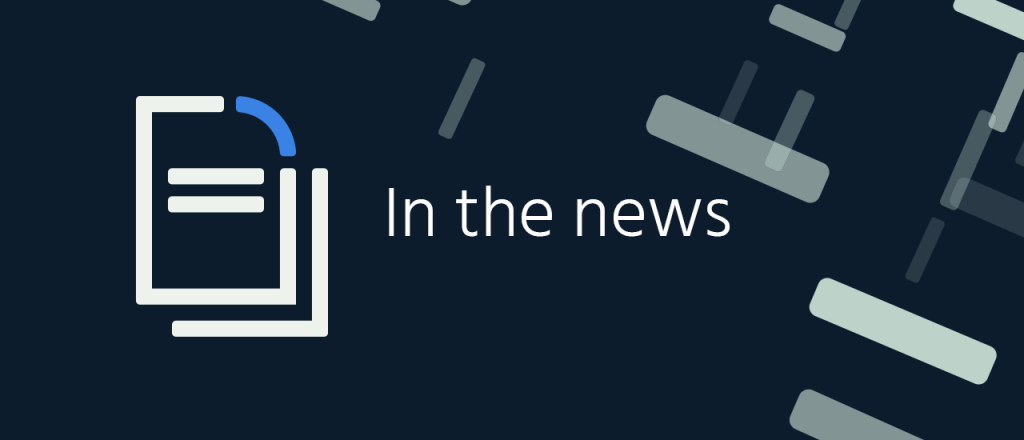
AI battles the fake news: Can Artificial Intelligence combat all the fake news that’s out there? An article in Forbes looks at several ways fake news fighters are using AI, but the author casts some doubt on these approaches. Ultimately, humans are the problem, the article says: “The willingness to believe sensational information is a real phenomenon and debunking false information does not always change people’s minds.”
Fake tweets: As social networks take steps to fight against fake news, some still have a way to go. Twitter, for example, is still flooded with sham accounts that generate more than 1 million tweets a day, reports CBS News. Twitter disputed the study the story is based on, noting it has suspended more than 70 million suspicious accounts in May and June.
Tiny infiltrations: Chinese hackers have used tiny microchips to gain access to computers at 30 U.S. companies, including Apple and Amazon, Bloomberg reports. Both companies disputed the report, and the U.K.’s National Cyber Security Centre appeared to support the denials later in the week, Reuters says.
Blockchain’s bright future: There were several reports this week focused on the growth projections of the blockchain technology, with the blockchain Continue reading